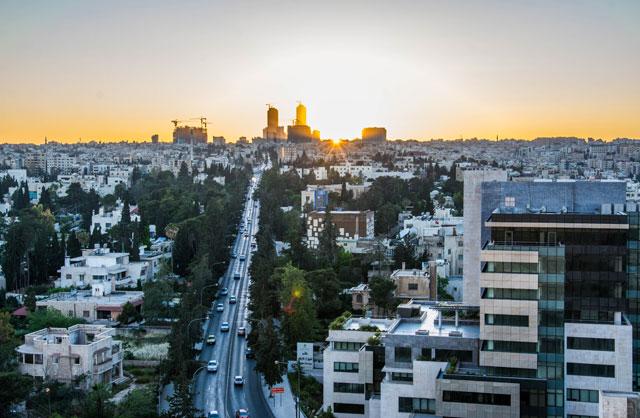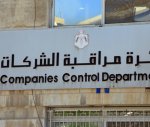You are here
New capital to be built on state lands — premier
By JT - Oct 29,2017 - Last updated at Oct 29,2017

A planned new capital is expected to take some pressure off Amman, which sufers from traffic problems and overcrowding (Photo by Amjad Ghsoun)
AMMAN — Prime Minister Hani Mulki on Sunday said that the new capital suggested to be established outside Amman is part of the government's efforts to stimulate the economy and attract qualitative investments.
Mulki stressed that the town will be built on state lands and surrounded by state lands, the Jordan News Agency, Petra, reported.
During a meeting with presidents of Jordanian universities, the prime minister described the project as a great investment opportunity for the private sector.
He explained that the strategic project is designed after modern cities, adding that it would contribute to a solution to the transportation problems in Amman.
Minister of State for Media Affairs and Government Spokesperson Mohammad Momani has said in press remarks that only a handful of concerned people know the location of the planned capital.
In the presence of ministers of higher education, Adel Tweisi, political affairs, Musa Maaytah, and media, Mohammad Momani, the premier noted that empowering Jordanians lies in focusing on the quality of education, which has been an edge for Jordan historically.
He stressed that the challenges facing education throughout all its stages have, however, influenced the outcome of the process, which is supposed to produce graduates with qualifications that meet the requirements of the labour market.
The prime minister outlined the economic challenges that face the Kingdom as a result of several internal and external factors, highlighting the need for persistence as economic reform is pursued, stressing that the country is challenged by lack of time.
The economic reform is planned to slash public debt and stimulate economy, Mulki said, noting that the reforms carried out by the government last year managed “for the first time” to freeze the ratio of public debt to gross domestic product. The ratio stands now at 95 per cent with plans to push it down further to 77 per cent by 2021. The Kingdom is also looking to decrease its reliance on foreign aid, targeting self-sufficiency by 2018, senior officials have said.
He noted that most existing exemptions in the Sales Tax Law were “not thoughtful”, have not achieved their goals and have contributed to public debt increase.
The prime minister stressed that the amendments to the law would not lead to increasing the sales tax above its ceiling of 16 per cent but will restore the law’s 1994 version.
He said that the government is able to control prices in many ways such as through the military and the civil consumer corporations, which make marginal profits on goods.
As for the income tax, the prime minister said that the draft by-law in the making aims to combat tax evasion at the individual and corporate levels and will toughen penalties to reach imprisonment without the option of replacing jail sentences with fines.
Towards the end of the meeting, Mulki listened to proposals and challenges that face Jordanian public and private universities.
Related Articles
AMMAN — His Majesty King Abdullah on Monday accepted the resignation of Hani Mulki’s Cabinet.King Abdullah sent a letter to Mulki in re
AMMAN — Prime Minister Hani Mulki has said that all subsidised commodities are being currently under study regarding the sales tax, stressin
AMMAN — Prime Minister Hani Mulki on Sunday chaired a meeting of the Economic Policy Council to discuss the financial reform and the plan to
















